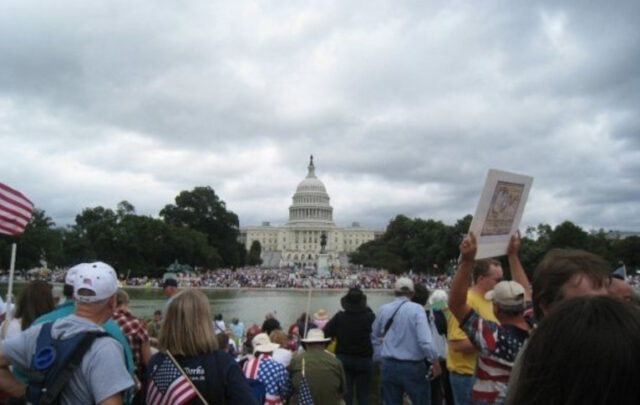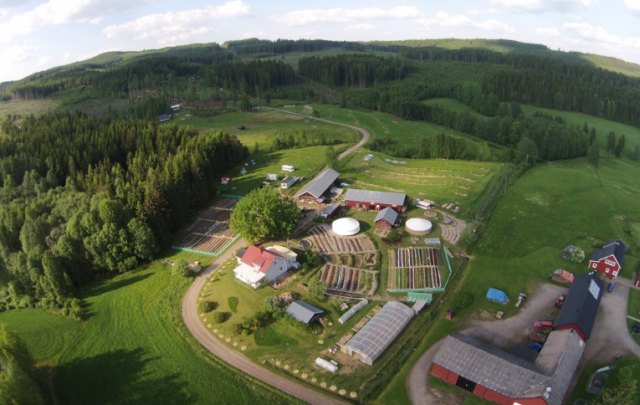I have a new book out from Counterpoint Press! It is titled The Age of Consequences: a Chronicle of Concern and Hope and it includes an Introduction by Wendell Berry. Here is a brief description, followed by a selection from the Prologue. For a review (and to order) see:
http://www.publishersweekly.com/978-1-61902-454-0
This is a book about questions and answers.
We live in what sustainability pioneer Wes Jackson calls “the most important moment in human history,” meaning we live at a decisive moment of action. The various challenges confronting us are like a bright warning light shining in the dashboard of a speeding vehicle called Civilization, accompanied by an insistent and annoying buzzing sound, requiring immediate attention. I call this moment the Age of Consequences – a time when the worrying consequences of our hard partying over the past sixty years have begun to bite hard, raising difficult and anguished questions.
How do you explain to your children, for example, what we’ve done to the planet – to their planet? How do you explain to them not only our actions but our inaction as well? It’s not enough simply to say that adults behave in complex, confusing, and often contradictory ways because children today can see the warning light in Civilization’s dashboard for themselves. When they point, what do we say?
As a parent and as a writer, this anguished question created a strong desire to document the sequence of events that I was witnessing as well as attempt to explain our behavior as a society. Hopefully, we would manage to turn off the warning light in the dashboard, but if we did not I was certain that future generations would want an accounting of our behavior. So, in 2008 I began to write, blending headlines with narrative and observation, travel and research into chronological installments, crossing my fingers.
Meanwhile, my work with the nonprofit Quivira Coalition provided hopeful answers to various Age of Consequences concerns, including many ‘low-tech’ solutions involving sunlight, grass, dirt, creeks and animals. These answers included ecological restoration, grassfed beef production, local food systems and carbon sequestration in soils, all part of what is being called a ‘new agrarianism.’ We saw it as connected – cattle, soil, grass, water, food, people – all working in nature’s image of health and regeneration.
Eventually, I viewed these anguished questions and hopeful answers as two sides of the same coin and pulled them together into this book. Answers exist if we’re willing to work together and try new ideas (and some old ones). While there’s much to worry about these days, there’s also a lot that we can do together at the grassroots – beginning literally with the grass and the roots.
This book was born on a sunny summer day in 2006 when I stepped out of a movie theater with my wife into the warm embrace of a lazy afternoon.
Gen and I had finally found a convenient time to see former vice president Al Gore’s inconvenient documentary on global warming, with its dire warnings of environmental and social turmoil ahead if we maintained the status quo. Like millions of others, we were unnerved by what we saw. I was especially disturbed by the graphic images of rising seawater snaking through the streets of Manhattan, Shanghai, and other low-lying cities around the globe. As we stepped off the curb into the parking lot, blinking in the bright sunlight after the movie, I quipped to Gen, “We’d better see Venice, quick.”
The film’s message wasn’t exactly news to us. My work as a conservationist, first with the New Mexico chapter of the Sierra Club and then as a cofounder of the Quivira Coalition, a nonprofit dedicated to building bridges between ranchers, environmentalists, and others around practices that improved land health, had taught me a great deal about the precarious state of our planet. I knew challenges abounded, but Mr. Gore managed to raise my anxiety to a new level. The core issue, I realized, was that sooner or later, Business As Usual would mean serious trouble for every living thing on the planet.
Watching the documentary, an image popped into my mind of a bright warning light—in the shape of a thermometer—shining in the dashboard of a speeding vehicle called Civilization, accompanied by an insistent and annoying buzzing sound. And like all warning lights, I knew we ignored it at our peril.
As I sat in the dark theater, listening to the former vice president lecture us about our responsibilities and watching the charts and maps of our discontents, I suspected we were seeing only the tip of the iceberg, so to speak. It wasn’t just global warming—a great deal more lurked unseen, below the rising waterline. So when Mr. Gore quoted Winston Churchill as describing the run-up to World War II as an “era of consequences”—because Hitler’s rise was a pickle of our own making—I immediately thought of the phrase “the age of consequences” to describe our current period.
I mentioned my idea to Gen as we approached the car after the movie. As an archaeologist, I knew she would understand its appeal. History is replete with Eras, Ages, Periods, and Revolutions—Agricultural, Industrial, Technological. Consider all the monikers that have been attached to the current epoch, including the now infamous “Information Age”—infamous because it feels like we’re drowning in information while the world unravels. Why not the Age of Consequences? Gen agreed. I filed the thought away.
We climbed into the car and drove home.
The idea to start a chronicle happened a year later, sparked by two events. The first took place over breakfast one morning when our eight-year-old twins, Sterling and Olivia, heard a story on public radio about the possibility of all polar bears dying out as a result of global warming. After a minute or two, the kids froze as they listened, their faces ashen as the disembodied voice of a biologist explained that disappearing sea ice at the North Pole likely spelled doom for the bears. They turned their faces to us, their expressions saying it all: The polar bears are going to die?
My heart sank. What could we say? We tried to explain to them that no one really knows if the polar bears are doomed or not. The biologist might be wrong. After all, polar bears have been around for a very long time and have survived a variety of adverse conditions before, including other episodes of severe climate change. Maybe they’ll pull through again. This mollified them, and they trooped off to school with their spirits restored.
It didn’t mollify me, however.
I turned the incident over in my mind after their departure. What if the polar bears did die off? What if Sterling and Olivia never got to see one in the wild, ever? Worse, how do you explain to your children what we’ve done to the planet—to their planet—over the past sixty years or so as a consequence of our hard partying? How do you explain to them not only our actions but our inaction as well? It’s not enough simply to say that adults behave in complex, confusing, and often contradictory ways, because children today can see the warning light in Civilization’s dashboard for themselves. When they point, what do we say?
I didn’t know, but finding some way to answer these anguished questions suddenly became a priority.
The second event happened a few months later, while lunching with Wes Jackson and his wife at their home near Salina, Kansas. Wes is founder and director of the Land Institute, which is dedicated to the important business of reinventing the nation’s agriculture along regenerative and sustainable lines, so when he said, “We live at the most important moment in human history,” I paused between bites of my ham sandwich. That’s because a similar thought had occurred to me recently. I asked him what he meant. Wes said that we live at a decisive moment of action. The various challenges confronting humanity now require, like a long line of airplanes waiting to land at a busy airport, attention—immediate attention. Time is short. Hurry up.
“What sort of action do you recommend?” I asked.
“It means we have to practice restraint,” he replied. “That’s not something humans do very well, of course. But it’s something we’ve got to learn, or things will get much worse.”
Was it possible? I knew that two generations ago, during an era of privation and global conflict, restraint was not only possible but widely practiced. Gas rationing. Victory gardens. Meat twice a week. Prudence and frugality ruled. But everything changed after World War II. The arrow of Progress tipped upward dramatically. We were encouraged at every level to be unrestrained in all that we did—how far we traveled, how much we ate, what we built, or where we sprawled. “Just Do It” became the unofficial motto of my generation, courtesy of a shoe company. Progress, we were told, had no limits and no consequences. Viva la fiesta! Enjoy the party, there won’t be a hangover.
They were wrong.
I thought about Sterling and Olivia again. It wasn’t anguish I felt this time, however, but indignation. What sort of world will they be inheriting from us? One more bountiful and secure than the one I inherited from my parents, or one more diminished and dangerous? Reports already said that Sterling and Olivia’s generation would be less healthy than my generation was at their age—a first in American history, unhappily. Dread began to mix with anger. As a parent, there is perhaps no greater fear than the sense that your children’s lives may be worse off than yours. And that’s a real worry today, especially knowing it was up to us to handle this important moment in history properly. So far, we weren’t doing such a bang-up job.
I know what Wes thinks about it.
Shortly after my visit, I read an essay he wrote based on a commencement address he gave a month earlier at Washington College in Maryland, in which he told the students they were “the children of depletion” and warned them of the inevitable, upcoming contraction of American society. Not surprisingly, the president of the college came rushing up to him after his speech sputtering: “You can’t say those things!”
Indeed. That’s the trouble with calls to action these days—they can’t avoid the umbra of doom and gloom. I’ve been there myself. In fact, I’ve heard the mantra of coming trouble so often that I began to suffer from the early signs of what I call “future fatigue.” It’s a dispiriting affliction that often results in listlessness and apathy. If not caught quickly (usually by sticking one’s fingers in one’s ears), it can spread quickly, sometimes disabling friends and loved ones. However, when I read Wes’s commencement address, I realized that his call to action needed to be heard and shared.
“In painting you this bleak picture, I hope you understand that I am honoring you as adults,” he told the students. “You were born on the upslope of energy and economic growth, but much of your life is likely to be on the downslope in the use of nonrenewable energy.”
That’s because we’re depleting the five pools of carbon—soil, wood, coal, oil, and natural gas—at an unsustainable rate, he said. We’ve burned up, for instance, half the planet’s known reserves of oil—one trillion barrels—in less than a century. Technology is not likely to ride to the rescue either. Energy, after all, cannot be created or destroyed, just transformed, according to the first law of thermodynamics. So, when sources of energy-rich carbon go into decline, as they will, we either find a suitable replacement, or society goes into decline too.
That’s when a second warning light in Civilization’s dashboard flickered on in my mind—in the shape of a “low oil” pressure gauge. Urgent action was required here too. Then a third warning light appeared, blinking rapidly. It was the engine warning light, indicating it was time for an overhaul of the main economic means of Civilization’s propulsion down the path of Progress.
As a parent and as a writer, the anguish embedded in both of these events created a strong desire to do something beyond my day job with the Quivira Coalition. At the very least, I wanted to document what I was witnessing so that Sterling and Olivia and their cohort could get a sense of why we did what we did—or didn’t do—as a society. Hopefully, I would be documenting how we managed to turn off those warning lights in the dashboard. If we failed, however, I was certain that future generations would be asking anguished (and angry) questions of their own.
As someone living through this important moment in time, I felt an obligation to chronicle the flow of current events in case it might be useful, now or later. At the same time, I felt compelled to recount my own journey. So, on Earth Day 2008, I began to write, blending headlines, narrative, and observation with travel and research to shape chronological installments, which I posted in an online publication I called A Chronicle of the Age of Consequences.
Here’s a photo I took for the Chronicle:







